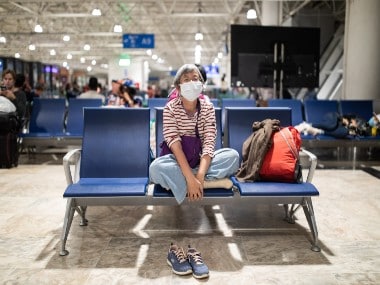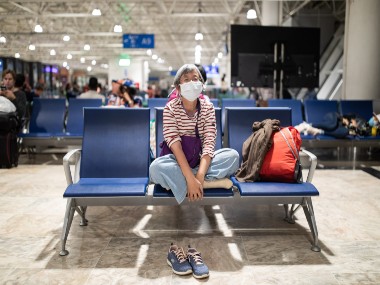2019 Novel Coronavirus (2019-nCoV) has claimed more than 900 lives to date. But nearly 3,500 patients have also recovered from the infection as of 10 February. This has renewed interest in the question of why some people are better at fighting off some viral infections than others. [caption id=“attachment_8026911” align=“alignleft” width=“380”]  Representational image. Image source: Getty Images.[/caption] To be sure, most of the people who died after contracting 2019-nCoV infection were the elderly who already had respiratory ailments or other health conditions, or very young children who had poor immunity. But there were also some younger adults in the mix. (Perhaps the most famous example was the late Dr Li Wenliang - the 34-year-old doctor who first raised the alarm about the “SARS-like” infection.)
Questions of the hour
Last week, researchers at the University of California, Los Angeles (UCLA), uncovered two things about how our bodies respond to viral infections. The first study looked at why we are more susceptible to some viruses than others. The second study looked at the effectiveness of screening methods at airports: passengers travelling from countries where the 2019 Novel Coronavirus has wreaked havoc are being screened at airports around the world, including in many Indian metros. Here’s what the UCLA researchers found: One, you have better immunity to whichever influenza strain —H1N1 or H3N2 — was involved in your first-ever flu as a child. Two, current methods for testing passengers at airports are insufficient and those with milder forms of the infection (especially those who do not have any symptoms yet) may pass the inspection easily.
What do these findings mean?
While cases of 2019-nCoV infection outside mainland China seem to be contained for the moment, it won’t take much for the virus to enter a densely populated area with poor health infrastructure. Dr Tedros Adhanom Ghebreyesus, Director-General of the World Health Organization, has expressed his concern in the past, saying that the infections currently seen in foreign countries are just the “tip of the iceberg” of a larger health crisis waiting to happen. Currently, there are fewer than 400 confirmed cases of 2019-nCoV infection outside of mainland China. Airport screenings are crucial to keeping this number down. According to the study by UCLA, less than half of those infected can actually be found out through airport screenings. In most places screenings consist of checking temperature, coughs and trouble breathing. The issue with this is that people can have the virus in their system for up to two weeks before showing symptoms. If there are no symptoms during screening and people are unaware of being exposed to the virus, it becomes very difficult to decide whom to quarantine. This is especially concerning, given that human-to-human transmission is proving to be a challenge with the Wuhan Coronavirus. If the virus makes its way to a crowded country which has a poor healthcare system, the infection can spread very quickly and lethally. To avert this possibility, health officials also have to keep a tab on people who have returned from 2019-nCoV-hit countries since January, in the weeks after their arrival. This is why governments have imposed quarantines on people travelling from affected areas. The efficacy of this move will only become known in the near future based on whether the epidemic is controlled or not.
What determines our immunity to certain viruses?
The UCLA study looked at two viral strains: H1N1 and H3N2. H1N1 (Swine flu) affects younger people more and is fatal less often whereas H3N2 affects older people and is fatal more often. It turns out that those who were exposed to H1N1 in their childhood were less likely to end up in the hospital if they were infected with H1N1 again in the future. Similarly, those who encountered H3N2 early on developed stronger immunity to it: the process is called “immunological imprinting”. Early infection with a strain does provide some protection from the other strain as well, but it is not as strong. This means that the sequence of infection in childhood matters; the viral infection you encounter first is the one you will be more immune to rather than which one you get more often. The findings also suggest why so many of us get the flu. Even those who were exposed to H1N1 in their childhood had poor immunity against another strain of the flu, H2N2. These viruses are genetically quite similar but our bodies are somehow not able to use immunological imprinting to gain immunity against the other. A chink in our body’s natural armour? Perhaps. More research needs to be conducted to understand why this is the case. Or what it means for us as new viruses like the 2019 Novel Coronavirus threaten the health of people in multiple countries around the globe. For more information, read our article on Coronavirus Infection: Symptoms, Causes, Types, Treatment_._ Health articles in Firstpost are written by myUpchar.com, India’s first and biggest resource for verified medical information. At myUpchar, researchers and journalists work with doctors to bring you information on all things health.


)

)
)
)
)
)
)
)
)



